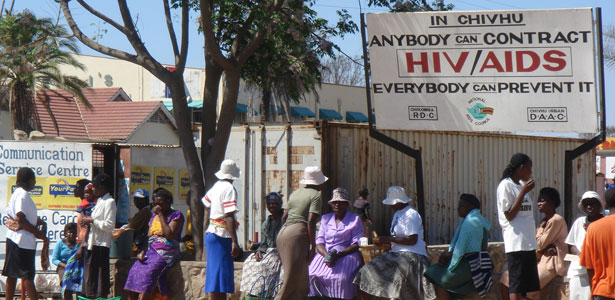By Pamela Shumba
The World Health Organisation (WHO) has revised its HIV guidelines to recommend that anyone who tests positive for the virus that causes AIDS should be treated immediately.

That guidance fits with what is already recommended in many developed nations, including the United States.
The United Nations (UN) health agency had previously said doctors should wait to treat some people with HIV until their immune systems suggested they were getting sick.
In a statement yesterday, WHO said the new recommendations are based on recent trials that have found early treatment keeps people with HIV alive, healthier and reduces the risk of transmitting the virus.
The new guidelines mean that all 37 million people with HIV globally should be offered immediate treatment, a prospect that may be unrealistic in poor countries, where many patients are still unable to get medicines.
Last year, only about 15 million people with HIV were being treated.
In Zimbabwe, the Ministry of Health and Child Care says there are an estimated 1,4 million people living with HIV, although only 825,000 are receiving life-saving medication.
The difference, say health authorities, are people who are not aware that they are infected.
Dr Owen Mugurungi, the Ministry of Health and Child Care’s Aids and TB unit director, yesterday said existing guidelines recommended immediate treatment only for children and pregnant women who test positive for HIV.
He added: “For adults, it’s only those whose CD4 count (white blood cells that play a major role in protecting your body from infection) is 500 or less who are placed on immediate treatment.
“If you’re HIV positive and have a partner who is HIV negative, regardless of your CD4 count, you’re also put on medication to lower the risk of infecting your partner.”
Dr Mugurungi said the government would adopt the new WHO guidelines once official communication is received, insisting it was premature to say whether Zimbabwe had the financial resources for the new treatment regime.
WHO says the sickest patients should be prioritised and that people who are at high risk of being infected should also be offered preventive therapy.
While other experts commended the new guidelines, they warned that fulfilling them would require a substantial cash injection and an overhaul of current strategies.
To work as a tool to control the epidemic, (these guidelines) will require drastic changes and increased investment, said Dr Tom Ellman, the director of the Southern Africa Medical Unit for Doctors Without Borders. Nobody’s going to end AIDS with business as usual.
He said HIV treatment had to move out of the clinics into the communities where patients live.
WHO and the UN AIDS agency estimated that implementing the new guidelines could avert 21 million AIDS deaths and prevent 28 million new infections by 2030. The Chronicle






